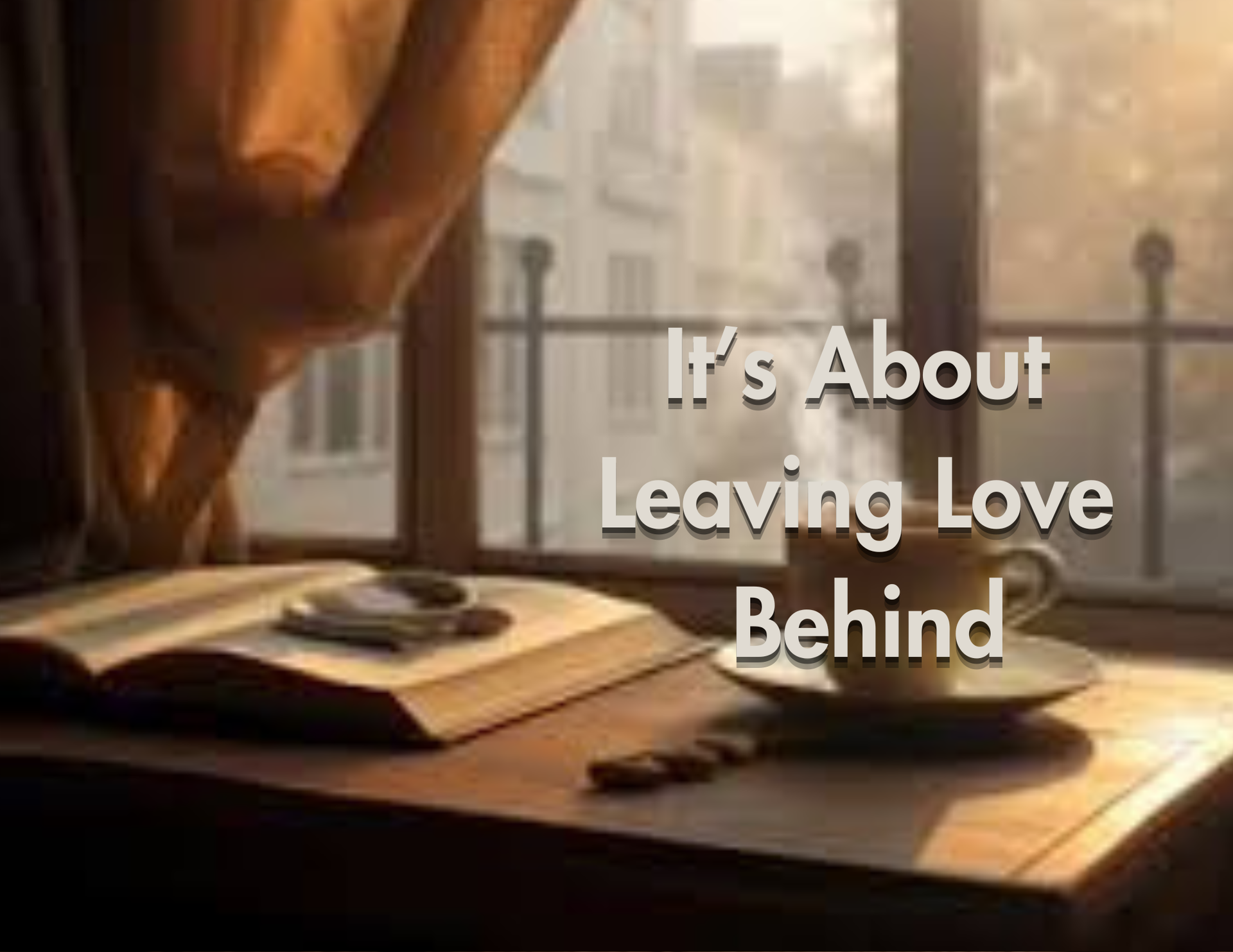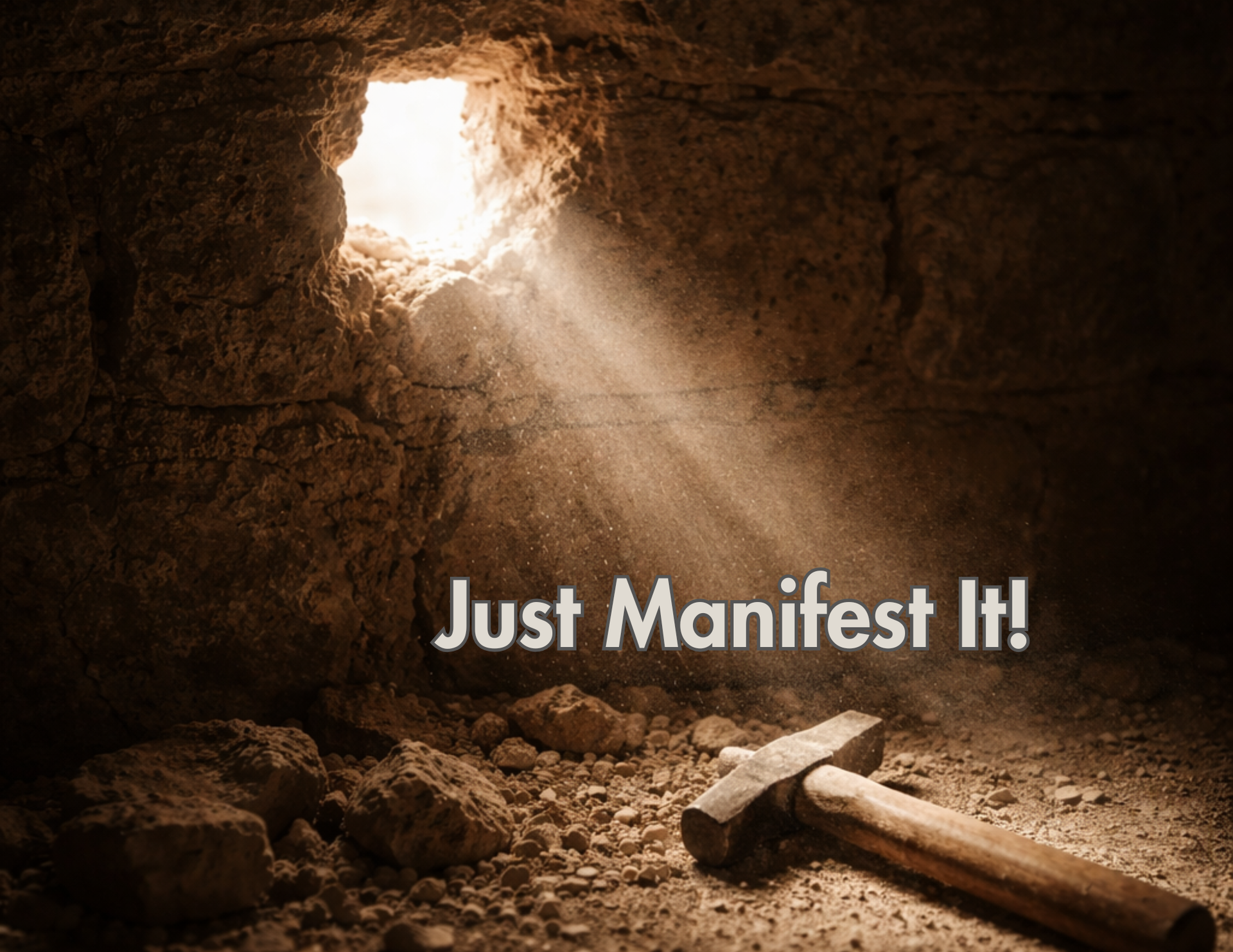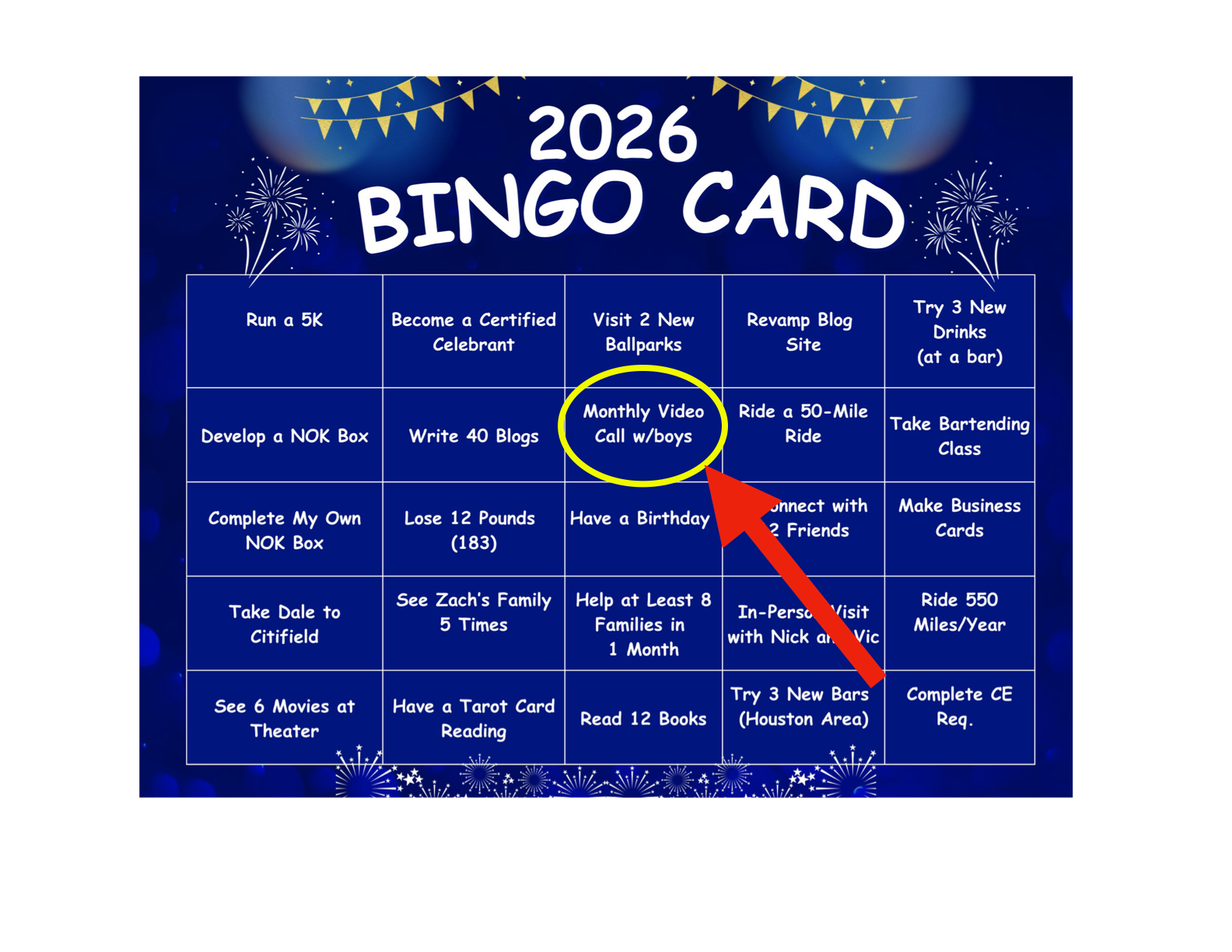The Glove Left Behind
On Baseball, Absence, and the Sacred Ache of What Never Was
I never had a catch with my dad. Not once. Not even close.
He chose to leave pretty much, long before I knew what to do with a ball or how to spell “mitt.” One day he was there, the next—he wasn’t. No goodbye. No warning. Just gone, like a foul ball that disappears into the stands and doesn’t come back.
I didn’t even know what I was missing at the time. You can’t grieve what you don’t understand. But as I got older and saw other dads playing catch with their kids—heard the thump of leather in the air, saw the high-fives and the laughter—I started to understand exactly what I didn’t get.
Then one day, years later, I was digging through an old box when I found it. Inside among papers, certificates and other stuff, was a baseball glove. His glove. It was worn and dusty, creased like it had lived a life. I slipped my hand inside. It didn’t fit quite right. No way it could fit, he was left-handed. He was a southpaw. And I never knew.
It hit me, standing with his glove, that I didn’t even know what hand my father threw with. That glove had never been mine and never would be. It wasn’t a gift. It was just… something he left behind.
I kept it. Tucked it back into the box. Closed the box and returned it to the shelf. Funny enough, there’s another box in the same closet. That one holds his ashes. So now I’ve got a box with his body, and a box with his glove. One for the man who left, one for the game he never played with me.
Now, if you know me, you know I love baseball. For me it is the metaphor for life, The long season. The rhythm. The fact that you can fail seven times out of ten and still be considered great.
That’s probably why Field of Dreams always hits me like a fastball to the chest. Especially the end—Costner turning to his dad, voice a little shaky, asking, “Hey Dad… wanna have a catch?” Every single time, I lose it. Doesn’t matter how many times I’ve seen it. That moment wrecks me. Because that was my dream. Always. That was the moment I never got.
But here’s where the story turns.
Not long ago, I was in the backyard with one of my sons. We were messing around; we grabbed gloves (both right-handed ones, thank you very much) and I him tossed a ball. He threw it back. And there it was. We were having a catch. Just like that.
No soundtrack swelling. No ghosts in cornfields. Just a dad and his kid, throwing a ball back and forth. And I’ve gotta say—it was one of the best things ever.
That backyard moment didn’t fix what I missed growing up. But it rewrote the story. It baptized the ache. It reminded me that I don’t have to pass down what was handed to me. I get to choose something different. I get to show up.
That glove—the one that never quite fit—still sits in the box. But lately, I’ve thought about taking it out. Maybe even setting it on a shelf. Not because it’s sacred, but because it tells the truth. That even something left behind can hold a thread of redemption.
It’s a reminder, of the father who disappeared, of the son who chose to stay,
and the backyard catch that said, this story isn’t over.
I never had a catch with my dad. But I get to have one with my boys. And maybe that’s enough. Maybe it’s more than enough.
Because I still believe in baseball. I believe in gloves that don’t fit and grace that does. I believe in showing up—even when it wasn’t shown to you. And I believe that when this life winds down, and the lights go soft, I’ll hear a voice—quiet, kind, and holy—“Hey kid… wanna have a catch?”
And I’ll know exactly who it is.

There is a moment in almost every conversation when someone tilts their head and asks the question carefully, like they are not quite sure if they might accidentally offend me. “So… what do you do now? ” This used to be an easy answer. Depending on your faith background, I was a pastor, minister, preacher, or sometimes priest. Then I retired from the United Methodist Church and suddenly the answer got a little complicated. Now I have to think about it. I usually start by saying I am a celebrant, which means I then have to explain what a celebrant is. Yes, I officiate weddings and funerals, but it is different than being a minister. I even wrote a blog to explain that part of my life. It would probably be smarter if I just smiled and stopped talking, but I usually add that I also help families with final expense planning. That is often the moment their expression turns into polite confusion. People understand weddings and funerals. But final expense? That phrase floats in the air like a balloon nobody is quite sure who should grab until someone finally says it out loud. “So… are you a life insurance salesman? ” I smile and nod. Short answer: yes. Longer answer: yes, but not the version you are picturing. When many people hear “life insurance,” their brain pulls up the image of a pushy salesperson with a stack of forms ( think Ned Ryerson from Groundhog Day ) and a conversation nobody wanted to have in the first place. I understand why that picture exists. I really do. But my version of this work did not start like that. It began in churches and funeral homes, in living rooms where families were exhausted, at kitchen tables covered with paperwork, and in quiet conversations that began with the sentence, “ We didn’t realize how expensive this would be. ” I officiated hundreds of funerals before I ever helped anyone buy a policy, and there was a pattern you could almost set your watch by. Some families were grieving and remembering, telling stories that somehow held both laughter and tears in the same breath. Other families were doing math. Hard math. The kind that sends people checking account balances and calculating what can wait and what cannot. Those are two very different kinds of grieving, and they lead to two very different funerals. I will never forget the first time that difference really hit me. A widow told me, very quietly, that she had managed to scrape together enough money to bury her husband. She said it like someone describing a marathon they had barely finished. Then she added, almost as an afterthought, “Now I’m not sure how I’m going to pay the rest of the bills.” That moment followed me home. It sat with me at my desk and rode shotgun in my car for a long time, because grief is already heavy. Watching families carry financial stress on top of it felt like watching someone try to carry groceries, luggage, and a piano all at once. Something in me kept thinking there has to be a way to move the piano ahead of time. Final expense planning is not really about death. It is about the people who will still be here. The spouse who should not have to start a GoFundMe while planning a funeral, and the adult children who should be able to focus on saying goodbye instead of opening credit cards. It is the quiet gift of leaving things a little easier than we found them. I sometimes call it the Last Love Letter. Not the poetic kind, the practical kind. The kind that says, “I thought about you. I prepared for you. I wanted to leave you one less burden.” These days I talk with people who requested information, sometimes months ago. I make a lot of phone calls, leave a lot of voicemails, and send a lot of texts that begin with, “Hey, this is Marty…” Often they do not answer. Sometimes they hang up. Sometimes they say no. Sometimes they say, “I’ve been meaning to take care of this.” And occasionally someone says, “I’m really glad you called.” Those moments matter more than the rest combined, because every once in a while a future funeral gets lighter, and that feels like a continuation of the same calling I have always had, just from a different angle. When I was a pastor, I walked with families after a loss. Now, sometimes, I get to help them before one. The tools look different, but the heart behind it does not. If you ever find yourself wondering whether this is something you should think about, I am always happy to have a conversation. No pressure, no scripts, just a human conversation about taking care of the people we love.

Jason, a good friend on the team, has a mantra he shares with me when I am hitting a point of frustration. He smiles and simply says, “ Manifest it Marty! ”. He hasn’t said it just once, and when he says it, it isn’t meant as a joke. It really might be his mantra. Sometimes I wonder if I visited him in his home in South Carolina if those words would be hanging in the kitchen, the living room, and his office. Nike has their slogan. Jason has his. Just Manifest it! I’ll be honest. The first few times I heard it, I didn’t know what to do with that sentence. My theological side thought it sounded too much like the prosperity gospel. You know, if you have enough faith blah blah blah. It seemed to treat God and the universe like a giant vending machine. Put your money in, press B7, and get the outcome you ordered. But I have sat with too many families in funeral homes, in hospital waiting rooms, or simply in my office as they share their grief, frustrations, and pain to believe God works that way. The life I know about is too messy. Too hard. And yet, this other part of me couldn’t just roll my eyes either. Because I have seen the power belief has to change people. It doesn’t change them instantly or magically, but the change is real and too hard to ignore. I have watched people who believed they were loved begin to live like they were loved. I have watched couples who believed their marriage could heal start doing the small, uncomfortable work of healing. I have watched grieving families who believed they would make it through the worst season of their lives take the next step. Belief didn’t remove the pain. Belief didn’t erase the struggle. But it did change how they moved through it. It changes posture. It changes tone. It changes attitude. And over time, those small decisions quietly change outcomes. I have discovered that belief changes behavior. It changes the choices we make when no one is watching. It changes what we try. It changes how long we keep trying. And over time, behavior has a way of changing outcomes. But I still needed to understand better. And as I was mulling over Jason’s mantra, it hit me. My brain started thinking about a movie. Not just any movie, but probably one of my top ten of all time: The Shawshank Redemption. When people talk about manifesting, they picture vision boards and affirmations. My brain pictured a Raquel Welch poster and a rock hammer. If you know the movie, you get the image. If you know the movie, you also know the tension between the two main characters. Red believes hope is dangerous. He says hope gets men hurt. Hope, according to Red, has no place in prison. But Andy sees it differently. Andy believes that, “Hope is a good thing, maybe the best of things, and no good thing ever dies.” And because of that belief, Andy lives like a free man long before he becomes one. He writes letters asking for library money. Week after week. Month after month. Year after year. He helps the guards with their taxes and helps inmates get their GEDs. He plays opera over the loudspeakers because beauty still matters, even in prison. And at night, when no one is watching, he chips away at a wall. One tiny piece at a time. For decades. Andy doesn’t sit on his bunk visualizing freedom. He behaves like freedom is possible. As I thought about that movie, I finally could reconcile the idea of “ manifest it ” with my theological understanding. Maybe manifestation isn’t about magic or the prosperity gospel. Maybe it is about living like the story is not over yet. Because if we are honest, most of us have a wall somewhere. Maybe it is a situation that feels stuck. A time in our lives that feels heavy. A future we cannot quite see yet. Or maybe, like me, it is a phone call we are not sure anyone will answer. It would be easy to decide nothing will change. Close the book. Roll the credits. But Shawshank hope says keep showing up. Keep doing the small things that move life forward one inch at a time. Hope is not wishful thinking. Hope is action. It is the quiet refusal to believe the story is finished. Sometimes hope looks like prayer. Sometimes it looks like a phone call. And sometimes it looks like a man with a rock hammer, patiently chipping away at a wall. And maybe that is the Unlikely Altar hiding in plain sight.

When I made my 2026 Bingo Board , I tried to choose squares that were a mix of practical, playful, and quietly important. Most of them felt normal, a few felt ambitious, and one or two felt slightly ridiculous. And then there was this one: Monthly Video Call with the Boys. Not climb a mountain. Not write a book. Not even run a marathon. Just call your sons once a month. It sounds so simple that it almost feels embarrassing to put on a life goals board, and yet here we are. If you had told me years ago that one day I would need to schedule time to talk with my kids, I would have laughed. There was a season when silence in our house meant something had gone terribly wrong. Back then, connection was automatic and constant and frequently sticky. We had bedtime stories and car rides and baseball games and the nightly performance of “ Dad, watch this, ” followed by something that absolutely required watching immediately. Togetherness wasn’t something we planned. It was simply the background music of daily life. Now they are grown men with grown-up schedules, real responsibilities, and calendars that fill up faster than mine ever did at their age. Somewhere along the way, spontaneous togetherness quietly slipped out the back door without an announcement or farewell speech. It just left, and life kept moving. So when I made my Bingo Board this year, I added the square: Monthly Video Call with the Boys. Here is the honest part. We haven’t scheduled it yet. Not the first one, not the recurring calendar invitation that will make it real. At the moment, this square exists as a hopeful intention and a line of text sitting patiently inside a blue box. Which means this blog post might be the most public nudge in family history. Boys, if you are reading this, consider yourselves gently called out. In the first Grace Bingo post, I wrote that you don’t conquer a square, you encounter it . Right now I am standing at the edge of this one the way you stand at the edge of a treadmill before pressing Start. I am not intimidated. I am simply aware that once the button gets pushed, something begins. It would be easy to tell myself this is unnecessary. We talk. We text. We stay connected in the everyday ways families do. But there is a difference between catching up here and there and intentionally setting aside time when the three of us can simply be together in the same conversation, even if together now looks like three faces inside small glowing rectangles. I have a strong suspicion that this square is not really about technology at all. It is about intention. It is about choosing to show up on purpose. It is about making space on the calendar for something that already matters. I can already imagine how the first call will probably go. Someone will be late. Someone will talk while muted. Someone will say, “ Wait, can you hear me now? ” at least twice. It will not be polished or cinematic, and no music will swell in the background. It will be wonderfully ordinary, which is exactly where grace has a habit of sneaking in. This square is not finished. It has not even started. But the moment I put it on the board, something shifted. A small, quiet decision was made and a door cracked open. Sometimes grace shows up the moment we decide to make room for it, even if it arrives by ZOOM link . Boys… your move. Following the Squares This is one square on the Grace Bingo board, and the year is still young. I am not trying to complete the board so much as pay attention to what happens inside the squares, including the starts, the delays, the surprises, and the moments that turn out to matter more than expected. You do not need your own board to follow along. All you really need is a little curiosity about where the sacred might be hiding in your everyday life, because chances are you have already been standing on an Unlikely Altar. And if this idea ever nudges you to sketch your own version of a Bingo Board, I would love to hear about it. You can email me here: martyvershel@gmail.com

